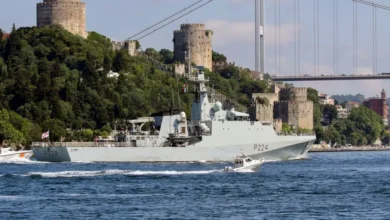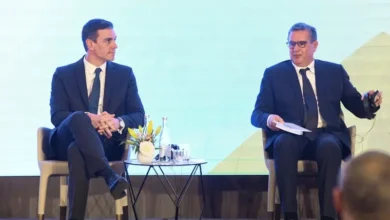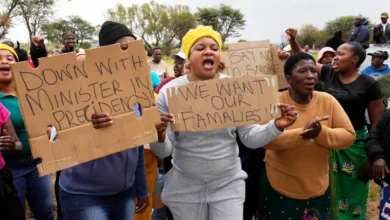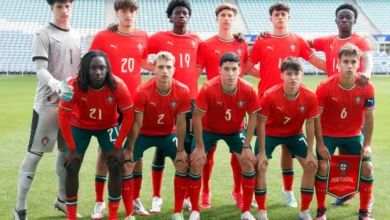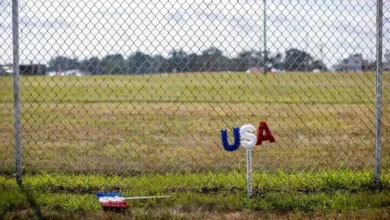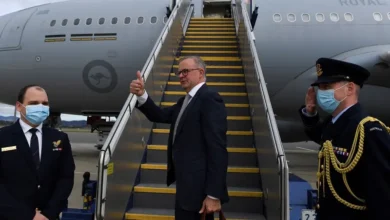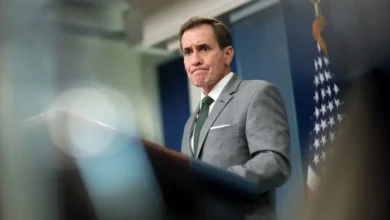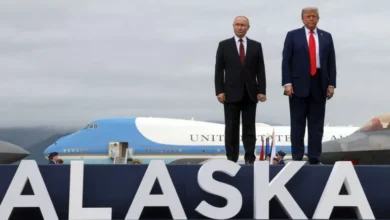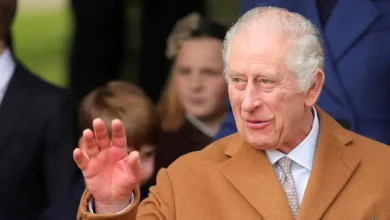Who is Calin Georgescu, Romanian right-wing candidate leading the election?
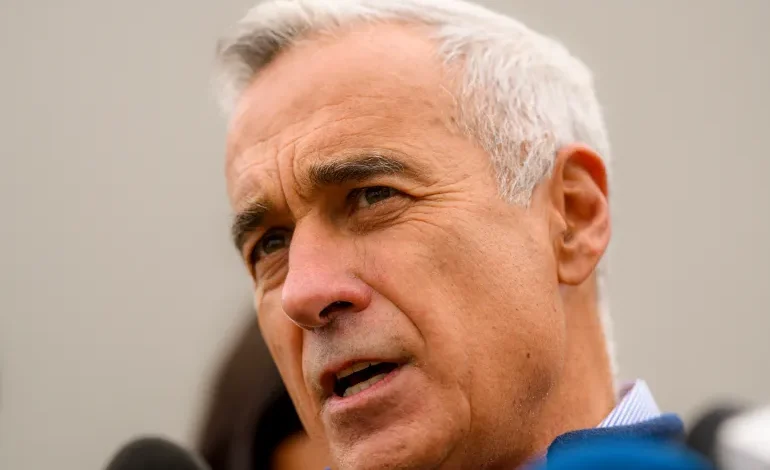
An independent candidate who until two years ago was part of Romania’s main far-right party has emerged as the surprising winner of the first round of the Eastern European nation’s presidential election on Sunday.
Calin Georgescu will now head into a run-off against the second-placed candidate in the election.
What was the result of the Romanian election?
In all, 52.4 percent of eligible voters in Romania, or 9.4 million voters cast their ballot, according to the Central Electoral Bureau.
After 98 percent of the ballots were counted, Georgescu defied opinion polls and emerged in first place with 23 percent of the votes, according to partial election results.
In second place was Prime Minister Marcel Ciolacu with about 20 percent of the vote. Ciolacu is the leader of Romania’s Social Democratic Party (PSD).
In third place is Elena Lasconi of the centre-right Save Romania Union (USR) party with approximately 19 percent of the votes. George Simion of the far-right Alliance for the Unity of Romanians (AUR) is in fourth place with 14 percent of the vote.
The outgoing president, Klaus Iohannis of the centre-right National Liberal Party (PNL), has been in office since 2014, and this is his second term. The PNL and the PSD are currently governing Romania in an uneasy coalition.
Who is Calin Georgescu?
Georgescu, 62, is an independent, right-wing candidate. He ran his campaign primarily on social media, particularly TikTok.
According to his website, he holds a doctorate in soil science and has worked for Romania’s Ministry of Environment. A university professor, he also worked with the United Nations as a special rapporteur in the Office of the High Commissioner for Human Rights between 2010 and 2012, and as the executive director of the Global Sustainable Index Institute between 2015 and 2016.
He is a former member of the far-right opposition alliance AUR and was its PM pick before he left in 2022 amid tensions with senior members of the coalition over his views on Russia and NATO.
While he has not explicitly admitted that he supports Russia, he said in an interview that Romania ought to abide by “Russian wisdom”.
In a 2022 interview, Georgescu called Russian President Vladimir Putin one of the few true leaders in the world.
During an interview in 2021, he described NATO’s ballistic missile defence shield in the Romanian military base Deveselu as a “shame of diplomacy”. He also said NATO would not protect any of its members if Russia were to attack them. Romania has been a NATO member since 2004.
Romania shares a 650km (400-mile) border with Ukraine. Since Russia launched its full-scale invasion of Ukraine in February 2022, Ukraine, one of the world’s biggest grain exporters, has used Romania’s Black Sea port of Constanta to export millions of tonnes of grain.
Russia has also reportedly violated Romanian airspace in villages that border Ukraine, but casualties have not been reported.
In 2020, Georgescu made statements supporting the 20th-century fascist Legionary Movement.
How did Georgescu manage to win so many votes?
Experts caution against misreading the verdict as driven by mass support for Georgescu.
He added that the majority of Georgescu voters are unaware of his “pro-Russia” comments, which he said did not find wide resonance within Romania’s population.
“Georgescu won the anti-establishment vote,” Philipp Lausberg, a senior policy analyst at Belgium-based research institute European Policy Centre, told Al Jazeera. “Many are tired of the existing party system, some don’t feel represented by them.”
Lausberg added that because of Georgescu’s softer stance on Russia, “some trust him to be able to make peace with Russia, but it is illusionary to think that Romania can make an impact there”.
Additionally, Lausberg said, Georgescu won the diaspora vote, likely from “labour migrants in Western Europe” because the independent candidate “gave them the idea that he would offer them a Romania that is worth returning home”.
Pandaru explained that Romanian voters did not want current PM Ciolacu or his coalition partners from the PNL to rise to the top job. Ciolacu’s popularity has been falling amid allegations of corruption against him and of plagiarism against a coalition partner.
